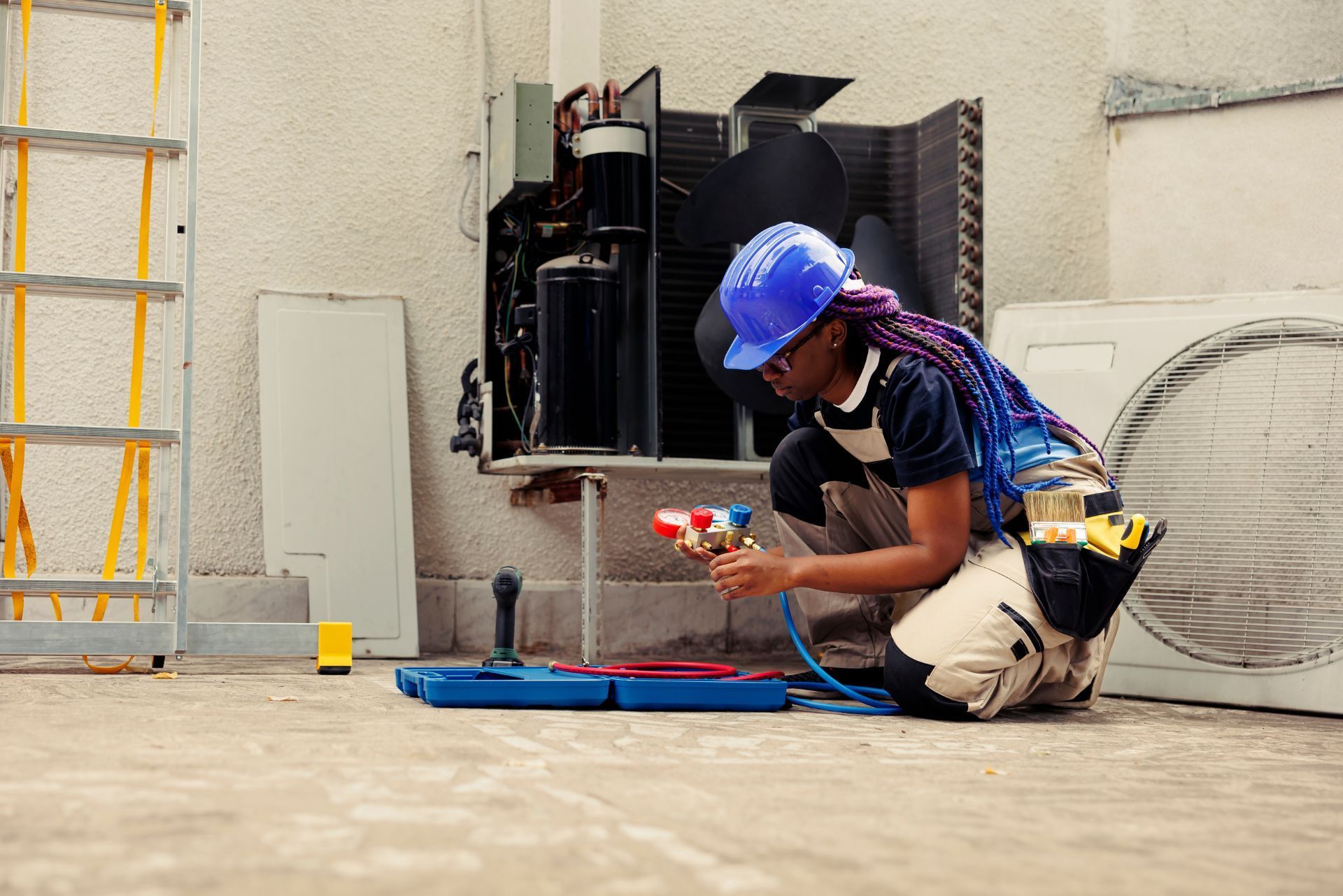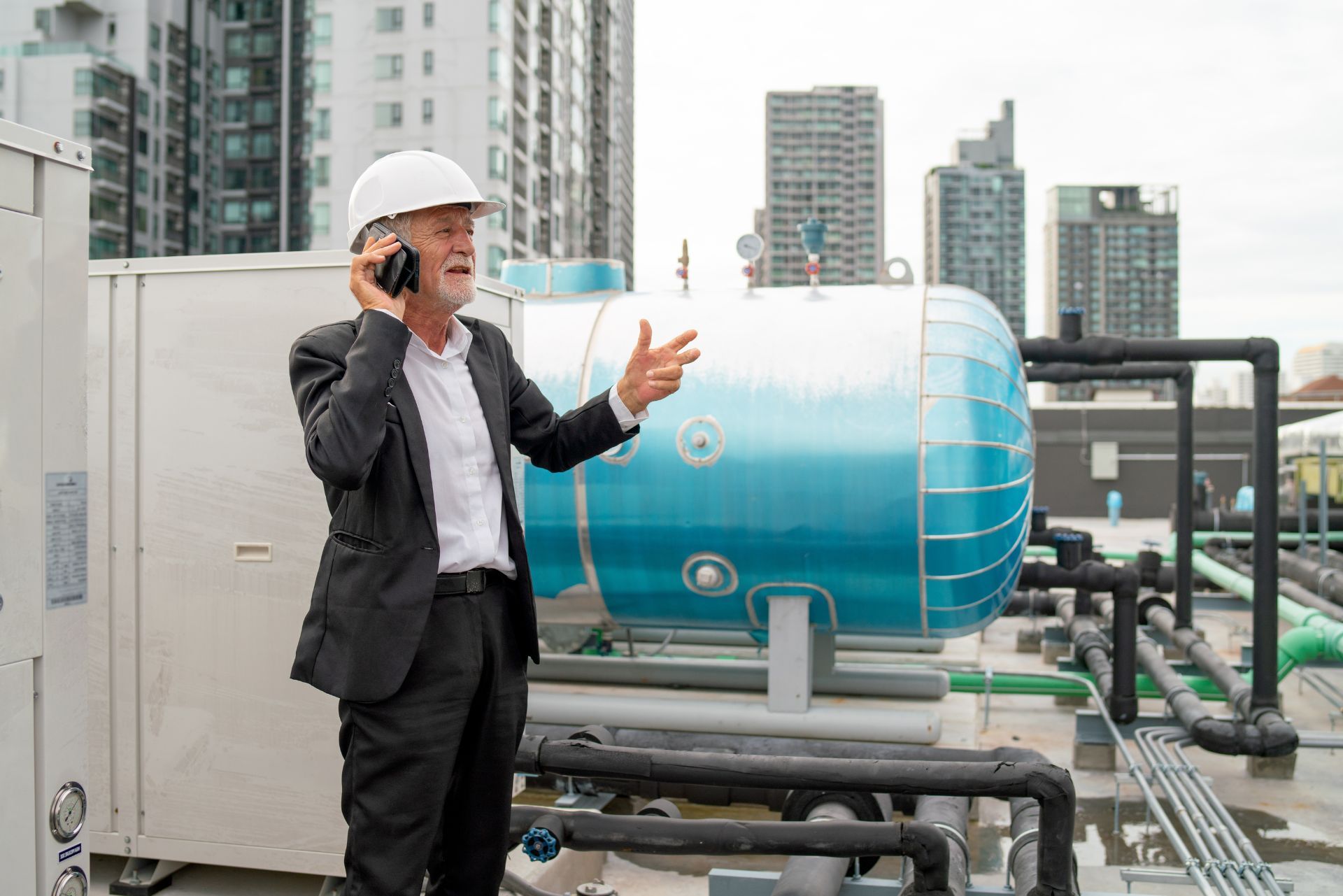Top 3 Recommended Policies

Running an HVAC contracting business involves more than just technical expertise and quality service. Protecting your investment, especially your commercial vehicles, is crucial to maintaining smooth operations and avoiding costly setbacks. Commercial auto insurance is a vital component of this protection, tailored specifically to cover the unique risks faced by HVAC contractors. This comprehensive guide covers everything you need to know about commercial auto insurance, from costs and coverage to regional nuances and best practices for securing the right policy.
Understanding the financial and legal implications of commercial auto insurance can save your business from unexpected expenses and liability claims. According to TechInsurance, HVAC contractors typically spend an average of $191 per month, or $2,292 annually, on commercial auto insurance. This investment not only safeguards vehicles but also protects employees and your business from liability risks that personal auto insurance simply does not cover.
Why HVAC Contractors Need Commercial Auto Insurance
HVAC contractors rely heavily on their vehicles to transport tools, equipment, and technicians to various job sites. These vehicles often face heavy usage, including carrying bulky or heavy equipment, navigating construction zones, and frequent stops. Personal auto insurance policies are generally inadequate for these conditions because they exclude coverage for commercial use.
As highlighted by HVAC Insurance, commercial vehicle insurance protects your business vehicles and employees from physical damage and liability claims arising from work-related activities. This coverage is essential to shield your business from costly repairs, medical expenses, and potential lawsuits following accidents or damages.
Moreover, commercial auto insurance covers a wide range of vehicle types commonly used by HVAC contractors, including heavy-duty pickup trucks and commercial vans. This flexibility ensures that all your business vehicles are adequately insured regardless of their size or purpose.
In addition to protecting against accidents, commercial auto insurance can also cover theft or vandalism of your vehicles and equipment. Given the significant investment HVAC contractors make in their vehicles and tools, having this protection can save a business from substantial financial losses. Furthermore, many policies offer roadside assistance, which can be invaluable in the event of a breakdown, ensuring that technicians can quickly get back on the road and minimize downtime on critical jobs.
Another critical aspect of commercial auto insurance is its role in enhancing your business's credibility. Clients and partners often feel more secure working with contractors who are fully insured, knowing that they are protected in the event of an accident. This assurance can lead to increased trust and potentially more business opportunities, as clients may prefer to hire contractors who demonstrate a commitment to safety and responsibility. Additionally, some contracts may even require proof of commercial auto insurance before work can commence, making it a necessary component of doing business in the HVAC industry.

Understanding Coverage Options and What They Include
Commercial auto insurance policies vary but generally include several key types of coverage:
- Liability Coverage: Covers bodily injury and property damage to others if your driver is at fault in an accident.
- Physical Damage Coverage: Includes collision and comprehensive coverage to repair or replace your vehicles after accidents, theft, vandalism, or natural disasters.
- Medical Payments: Pays for medical expenses for you and your passengers in case of an accident.
- Uninsured/Underinsured Motorist Coverage: Protects you if you are involved in an accident with a driver who lacks sufficient insurance.
Choosing the right mix of coverages depends on your business size, vehicle types, and typical job site risks. For instance, HVAC contractors in California often require multiple insurance types to fully protect their operations, including commercial auto insurance, general liability, and workers’ compensation, as noted by the GDI Insurance Agency.
In addition to the standard coverages, businesses may also consider optional endorsements that can enhance their policies. For example, rental reimbursement coverage can be invaluable for companies that rely on their vehicles for daily operations. If a vehicle is damaged and out of commission, this coverage can help offset the costs of renting a replacement vehicle, ensuring that business operations continue smoothly without significant interruption. Similarly, roadside assistance coverage can provide peace of mind, offering services such as towing, tire changes, and fuel delivery, which can be particularly beneficial for businesses that operate in remote areas or have employees on the road frequently.
Furthermore, understanding the nuances of each coverage type can lead to more informed decisions. For instance, while comprehensive coverage protects against non-collision incidents, it’s essential to recognize the specific exclusions that may apply. Natural disasters like floods or
earthquakes may not be covered under standard policies, prompting businesses in high-risk areas to seek additional coverage options. Engaging with an insurance professional can provide tailored advice, ensuring that your commercial auto insurance aligns with your unique operational needs and risk profile.
Regional Considerations: Why Location Matters
Insurance requirements and costs can vary significantly by state, making it important for HVAC contractors to understand local regulations and market conditions. For example, in Michigan, the auto insurance system has unique nuances that can lead to denied claims or uncovered losses if the wrong policy type is chosen. This complexity means contractors must carefully select policies that comply with state laws and provide adequate protection, as explained by Top O' Michigan Insurance Solutions.
In Washington State, commercial auto insurance costs for HVAC contractors range from $1,500 to $3,050 per vehicle annually, reflecting regional risk factors and market pricing. This variation underscores the importance of obtaining localized quotes to ensure competitive premiums without sacrificing coverage quality, according to ContractorNerd.
Moreover, HVAC contractors in states with extreme weather conditions, such as Florida or Texas, may face additional challenges when it comes to insurance. In Florida, for instance, the prevalence of hurricanes can lead to higher premiums and specific coverage requirements for wind and flood damage. Contractors must be proactive in understanding these risks and ensuring their policies adequately cover potential losses due to severe weather events. This is particularly critical for contractors who may be called upon to provide emergency services during and after such disasters, as their vehicles and equipment could be at greater risk.
Additionally, local labor laws and regulations can also influence insurance needs. In states with stringent worker's compensation laws, like California, HVAC contractors may find themselves facing higher premiums due to the increased risk associated with their workforce. Understanding the nuances of local labor laws not only helps in compliance but also aids in selecting the right insurance coverage that protects both the business and its employees. This comprehensive approach to insurance can ultimately safeguard against unexpected liabilities and ensure that contractors can operate smoothly in their respective markets.
How to Save on Commercial Auto Insurance Premiums
Insurance premiums can be a significant expense for HVAC contractors, but there are strategies to reduce costs without compromising coverage. One of the most effective methods is actively comparing quotes from multiple insurers. A study by ContractorNerd found that HVAC contractors who shop around can save between 38% and 73% off market average premiums.
Additional ways to lower premiums include maintaining a clean driving record for all employees, bundling commercial auto insurance with other business policies, and investing in vehicle safety features. Insurers often reward businesses that demonstrate risk management practices and responsible vehicle usage. For example, equipping vehicles with GPS tracking systems can not only enhance safety but also provide data that may lead to lower premiums, as it allows insurers to assess driving habits and reduce the perceived risk associated with your fleet.
Working with an insurance agent who understands the HVAC industry can also help identify discounts and tailor coverage to your specific needs, ensuring you don’t pay for unnecessary protection while staying compliant with legal requirements. Additionally, consider participating in industry-specific training programs that focus on safe driving and vehicle maintenance. Many insurance companies offer discounts to businesses whose employees complete such training, as it shows a commitment to reducing accidents and claims. Furthermore, keeping detailed records of your business’s safety practices and maintenance schedules can serve as leverage when negotiating premiums, showcasing your proactive approach to risk management.

Common Claims and Risks in HVAC Commercial Auto Insurance
HVAC contractors face a variety of risks when operating commercial vehicles. Common claims include vehicle collisions, damage from transporting heavy equipment, and liability claims resulting from accidents involving third parties. In the construction industry, general liability claims can be costly; for example, in Georgia, the average claim amount is around $7,000, highlighting the financial impact of accidents and damages on contractors’ businesses, as reported by The Institutes.
Understanding these risks and ensuring your commercial auto insurance policy covers them is essential to avoid unexpected out-of-pocket expenses. This includes coverage for physical damage to vehicles, liability protection, and medical payments for injured employees or third parties.
Moreover, HVAC contractors often operate in diverse environments, from residential neighborhoods to commercial construction sites, which can introduce unique challenges. For instance, navigating through tight spaces while transporting bulky equipment can lead to property damage claims if a vehicle inadvertently strikes a structure or another vehicle. Additionally, the risk of theft is heightened when valuable tools and equipment are left in vehicles overnight or at job sites, making it crucial for contractors to consider comprehensive coverage that protects against such losses.
Another significant aspect of HVAC commercial auto insurance is the importance of employee training and safety protocols. Ensuring that drivers are well-trained in safe driving practices and familiar with the specific challenges of transporting HVAC equipment can mitigate risks. Regular vehicle maintenance checks can also prevent breakdowns and accidents caused by mechanical failures. By investing in safety measures and adhering to industry best practices, HVAC contractors can not only reduce the likelihood of claims but also potentially lower their insurance premiums over time, creating a more sustainable business model in a competitive market.
Final Thoughts: Protecting Your HVAC Business on the Road
Commercial auto insurance is not just a regulatory requirement for many HVAC contractors—it’s a critical safeguard that protects your business assets, employees, and financial stability. Given the average annual cost of around $2,292 per contractor, investing in the right coverage is a prudent decision that can prevent devastating losses. This investment not only shields your vehicles but also covers liability in case of accidents, ensuring that your business can continue to operate without the looming threat of financial ruin from unforeseen incidents.
By understanding the specific coverage options, regional insurance nuances, and strategies for reducing premiums, HVAC contractors can secure comprehensive protection tailored to their unique needs. It's essential to consider factors such as the types of vehicles used, the distance traveled, and the nature of the work performed when selecting coverage. Additionally, implementing safety measures, such as driver training programs and regular vehicle maintenance checks, can significantly lower the risk of accidents and, consequently, insurance costs. Remember to regularly review your policies, compare quotes, and consult with knowledgeable insurance professionals to keep your business protected as it grows.
For more detailed guidance on commercial auto insurance and other essential coverages for HVAC contractors, resources like
HVAC Insurance provide valuable insights and support tailored to this specialized industry. Staying informed about trends in the insurance market can also help contractors make better decisions regarding their coverage. For instance, understanding how telematics can influence insurance premiums by tracking driving behavior can lead to more savings. By leveraging technology, HVAC businesses can not only enhance their operational efficiency but also potentially reduce their insurance costs over time.
Contact Us
Recognized by National HVAC Trade Associations
These trusted organizations set best practices and standards that carriers rely on when underwriting HVAC risks.
Membership signifies adherence to HVAC industry standards and contractor best practices.


